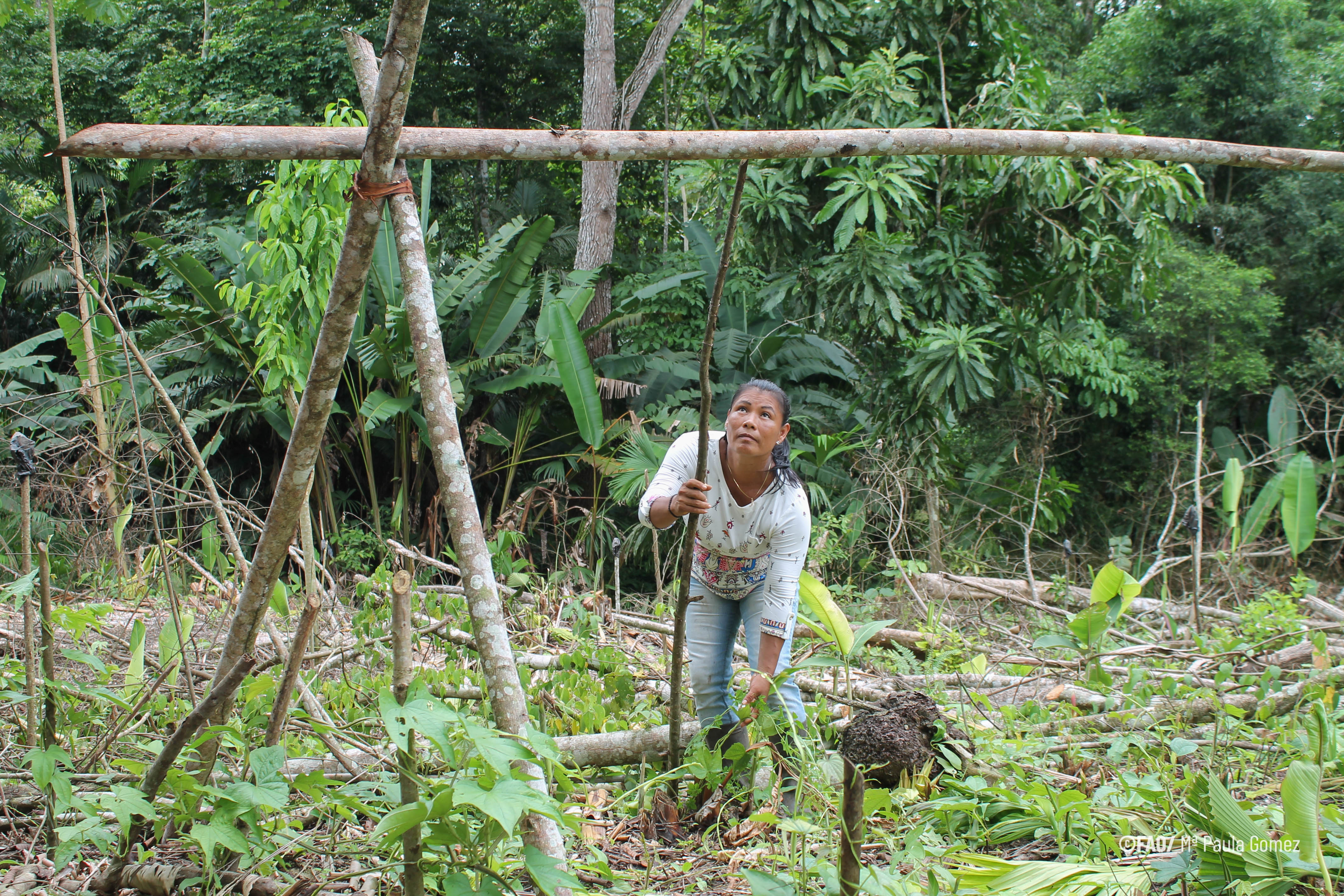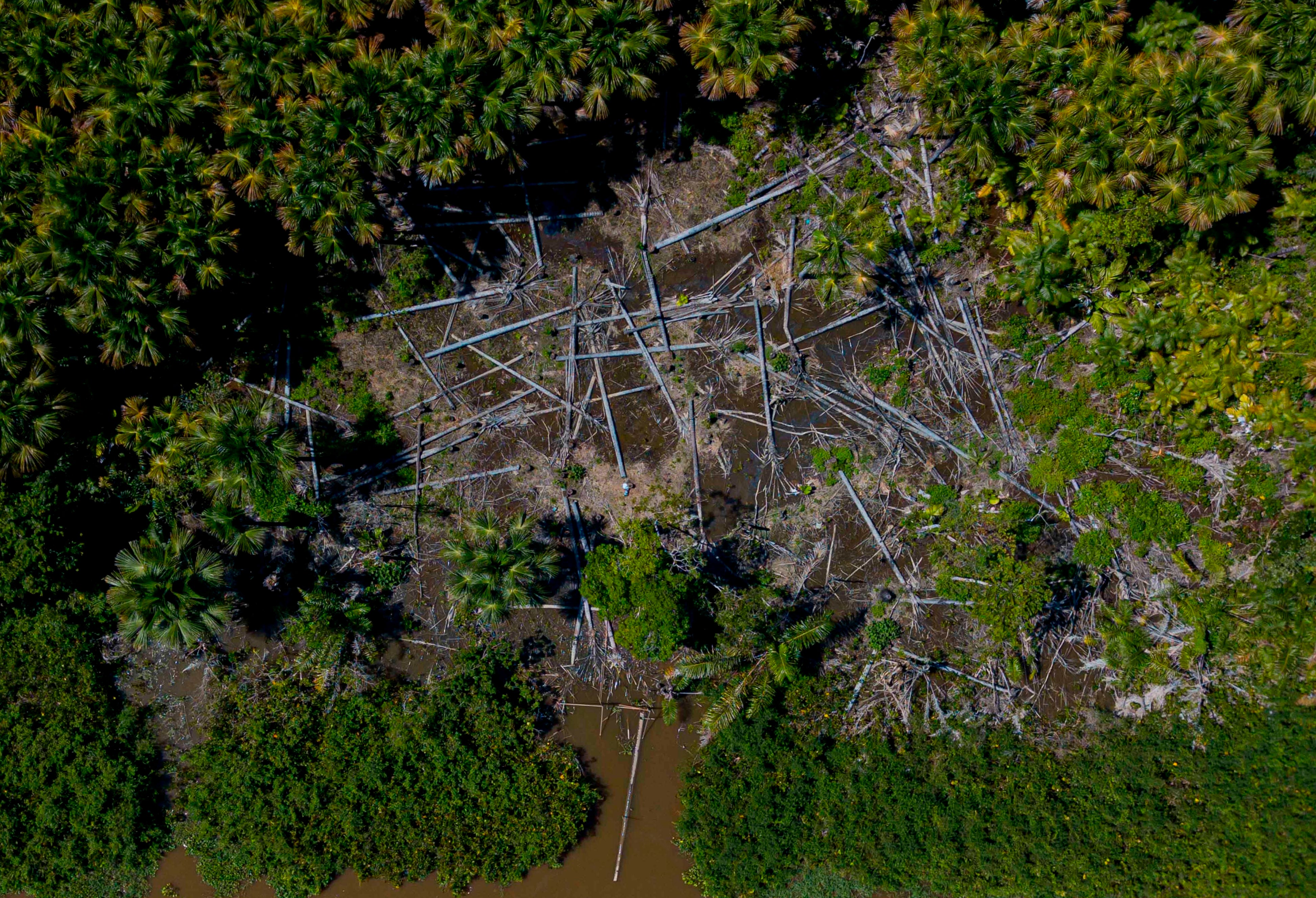Indigenous leadership key to curbing deforestation, says UN report
A review of 300 scientific studies highlights that rates of deforestation are lower in land controlled by indigenous peoples in Latin America and the Caribbean, writes Daisy Dunne


Protecting and enhancing the rights of indigenous peoples could help to curb rates of tropical deforestation – a major driver of the climate crisis – the UN says.
It has reviewed the results of more than 300 scientific studies published over the past two decades.
Indigenous peoples in Latin America and the Caribbean manage between 330 and 380 million hectares of rainforest – an area holding an eighth of all tropical forest carbon, the review says.
It draws on research finding that, across almost every country in Latin America and the Caribbean, rates of deforestation are lower in land where the rights of indigenous peoples are protected than in areas where they are compromised.
Research included in the review found that between 2000 and 2012, deforestation rates outside protected indigenous territories were 2.8 times higher than in protected areas in Bolivia, 2.5 times higher in Brazil and two times higher in Colombia.
Read more:
Dr Myrna Cunningham, a physician and indigenous rights activist who leads the Fund for the Development of the Indigenous Peoples of Latin America and the Caribbean, which produced the report alongside the UN’s Food and Agricultural Organisation, told The Independent: “The report comes at a very important moment when the world is looking to emerge from the pandemic in a sustainable way and to really accomplish its climate change goals.
“It highlights some of the things that we have been saying as indigenous peoples. It highlights the fact that in the areas where indigenous peoples have no control over the forest, there’s more deforestation and more problems.”
A second study included in the review found that, in 2016, indigenous territories covered 28 per cent of the Amazon Basin but were responsible for just 2.6 per cent of the region’s forest-related CO2 emissions.
Deforestation in the Amazon has spiked in recent years. Forest loss in Brazil reached a 12-year high last year, according to government data, with much of the destruction driven by illegal arson and logging activities.
Across the world, tropical deforestation accounts for around 8 per cent of all human-caused CO2 emissions and curtailing it will be key to meeting the world’s goal of limiting global warming to below 2C above pre-industrial levels, scientists say.

The report also highlights that indigenous peoples continue to face serious threats across Latin America and the Caribbean.
It cites research from the Fund for the Development of the Indigenous Peoples of Latin America and the Caribbean which found that 232 indigenous community leaders were killed in the Amazon basin region between 2015 and the first half of 2019 as a result of “disputes over land and natural resources”.
The report calls for more international resources to be devoted to protecting and enhancing the rights of indigenous communities across Latin America and the Caribbean.
Dr Cunningham said: “The report defines concrete ways in which governments and other institutions can support indigenous peoples and reduce deforestation.
“[They must] recognise indigenous peoples’ collective rights over territories, recognise their traditional knowledge and support their traditional ways in which they have managed the forest – and offer compensation for the ecosystem services provided by indigenous peoples.”
The report says that indigenous peoples should receive greater access to climate finance, the funding pledged by rich governments and NGOs to help poorer regions tackle the climate crisis.
Dr Cunningham added that indigenous communities needed to see “more than lip service” from the world’s politicians when it comes to enhancing their rights.
“There’s been a lot of lip service around the recognition of indigenous knowledge systems. We need to see more of that in policies,” she said.
“We need to see more budget and more resources going into concrete actions that apply indigenous knowledge systems.”
Join our commenting forum
Join thought-provoking conversations, follow other Independent readers and see their replies
Comments